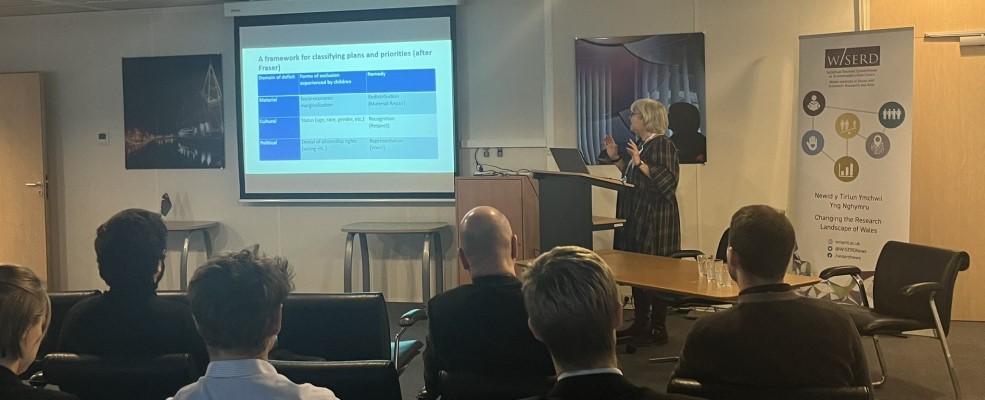On 25 January, WISERD and Welsh Higher Education Brussels (WHEB) hosted a workshop for policymakers in Brussels and made a case for civil society research being put at the heart of plans for the European Union.
Later this year, members of the European Council will meet to agree the Strategic Agenda for the European Union for 2024-29, that will aim to safeguard a “strong, dynamic, competitive and cohesive Europe in a changing world”.
In the declaration from an initial meeting in October last year, the Council stated that, “we will anticipate potential challenges and seize the opportunities for our Union in the green and digital transitions, in order to ensure the sustainability of our economic model, leaving no one behind”.
The WISERD-WHEB workshop, which took place at Wales House in Brussels, was attended by colleagues from European networks, and European regional governments and universities, and explored the role of civil society in building a strong, dynamic and cohesive Europe. Researchers from our ESRC-funded Civil Society Research Centre and those involved in projects funded by Horizon 2020 made the case for putting civil society at the heart of the new agenda.
Through a programme of short presentations, which demonstrated the connections between WISERD’s latest civil society research and key European policy priorities, our researchers set out ideas for how civil society organisations and activists can contribute towards the new agenda, and how they can be supported in doing so.
Contributions focused on building resilient and inclusive economies, enhancing social cohesion, and managing the digital transition. These included:
- Case studies on the Foundational Economy in Amsterdam, Zagreb and the UK;
- Analysis of EU policy documents and civil society commentaries on Artificial Intelligence;
- Research with Gypsy, Roma and Traveller organisations in Czechia, England and Wales;
- Comparison on UNICEF frameworks for child-friendly cities in France, England and the USA;
- Quantitative analysis of territorial inequalities across Europe and qualitative research on civil society responses;
- Case studies of civil society action to counter polarisation in Ireland and Wales;
- Innovative work with communities using hyper-local data in Wales.
These WISERD projects have involved researchers based at the five universities in Wales that make up WISERD – Aberystwyth, Bangor, Cardiff, South Wales and Swansea – and with partners from across the UK, Europe and globally.
Following the presentations, WISERD and WHEB colleagues had the opportunity to discuss the priorities likely to feature in the final three years of the Horizon Europe programme, in order to help shape future engagement with the programme.
WISERD Director, Professor Ian Rees Jones, said:
With the forthcoming Strategic Agenda for the European Union being finalised, this is a wonderful opportunity for WISERD researchers to present findings from ESRC and EU Horizon funded research programmes to a wide range of colleagues working in Europe.
I am delighted to have worked with colleagues in Welsh Higher Education Brussels to provide this platform for our interdisciplinary social science research, and to demonstrate the impact and reach of research undertaken by Welsh universities.
In addition to jointly hosting the workshop at Wales House, the WISERD team were also delighted to attend and share research at an alumni reception at the British Ambassador’s Residence, organised by Welsh Higher Education Brussels and supported by Global Wales. Attendees were welcomed by Amanda Wilkinson, Director of Universities Wales, and Derek Vaughan, Welsh Government Representative on Europe, who shared Wales’ commitment to engagement with the Horizon Europe programme and to education mobility.
The alumni, who studied at universities across Wales, are now working in the European Commission, European Parliament and other European networks and organisations, in a variety of policy fields, including mobility, energy and agriculture. They were able to connect and network while reminiscing about their time in Wales.
WISERD is grateful to colleagues at Welsh Higher Education Brussels (WHEB) for their support with the events and to everyone who attended and has shown an interest in further collaboration.

